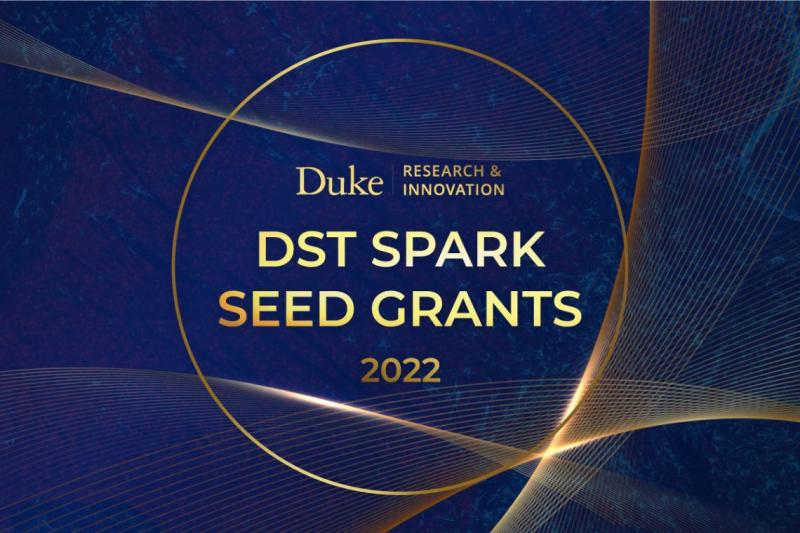Two PGC Faculty Among 2022 DST Spark Seed Grant Winners

The Office for Research and Innovation has awarded funding to nine best-in-class projects, including two faculty from the Precision Genomics Collaboratory, for the inaugural Duke Science and Technology (DST) Spark Seed Grant program. This year’s winners include early- to mid-career faculty from across campus and the School of Medicine who were selected from a pool of 52 finalists for delivering innovative and creative ideas in pursuit of new directions and the enhancement of research and scholarship at Duke.
“As new scientific discoveries and breakthroughs continue to surface at Duke, we’re excited by the novel ideas that our faculty have for tackling the world’s most pressing challenges through research” said Jenny Lodge, Duke’s vice president for Research & Innovation. “The proposals of this year’s DST Spark Seed Grants winners embody how research can improve lives — and we look forward to each PI’s accomplishments over the next year.”
Biostatistics and Bioinformatics
Project: Using Deep Learning To Train a Single-molecule DNA Sequencer to Accurately Identify DNA Lesions
PI: Raluca Gordan, Associate Professor of Biostatistics & Bioinformatics, Computer Science, and Molecular Genetics and Microbiology
Raluca Gordan is developing machine learning techniques for sequencing damaged DNA, which standard DNA sequencing technologies can’t handle. She hopes to use these techniques to better understand how proteins bind to damaged sites within the human genome and inhibit their repair, and whether this binding process gives rise to mutations that can lead to diseases such as cancer.
Molecular Genetics & Microbiology
Project: Interrogating Subcellular Gene Expression in the Developing Brain
PI: Debra Silver, Associate Professor of Molecular Genetics and Microbiology, Cell Biology, and Neurobiology
Debra Silver, an associate professor of molecular genetics and microbiology, will be studying the localization of messenger RNA and localized gene translation in nervous system cells. These processes are key to guiding new connections in a developing brain and are particularly focused in just one part of neural progenitor cells. The project will be trying to develop a new technology to measure and control gene expression in just one part of the cell. Developing a new technology is not typically funded by NIH, but mastering the technique could open up many new grant opportunities and be valuable for understanding local gene expression in systems beyond the brain.
View the full list of winners on Duke Today.